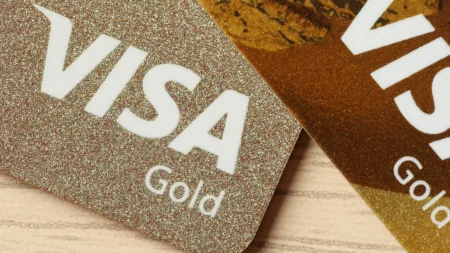When you have a financially challenging situation, and the debts seem to be piling up, you might discover that your credit score is negatively affected. The sooner you’re out of the debts, the better. These debts usually come with high-interest charges and late payment fees. So, it would be best if you had a debt management strategy.
The fact is that there’s no do-it-all solution. Many debt management options are available to Canadians, including debt consolidation, consumer proposal, and bankruptcy, among others.
One of the most sought out solutions is Debt Forgiveness. Debt forgiveness occurs when a lender reduces or forgives all or part of a creditor’s outstanding loan balance. Most times, there are terms and conditions attached to outright cancellation or reduced payment of debts. Here’s how it works in Canada.
Debt Forgiveness in Canada
Debt forgiveness as a debt relief management solution occurs when a taxpayer cannot service his or her debt due to an inability to meet certain financial obligations. The creditor may decide to forgive, cancel, or reduce all or part of the outstanding debts.
Debt forgiveness may not apply to every debt situation. In most cases, creditors cancel part or all your debts in exchange for a new payment plan. Debt forgiveness might be an ideal solution if you are:
- Struggling to make the monthly minimum payments on your debt.
- Missing monthly payments.
- Borrowing from loan companies to service your existing loans and pay bills.
- Having an increased debt balance
Types of Debt Forgiveness
While there are several debt forgiveness programs available to Canadians, here are the few debts and loans that can be forgiven:
Student Loan Debt Forgiveness
Student loan debts are forgiven after seven years of schooling. However, the program may be reduced to five years, depending on certain factors, including your income, profession, loan amount, bankruptcy, and more.
Mortgage Debt Forgiveness
In this program, the mortgage lender usually agrees with borrowers struggling with their finances to help them reduce their debts and monthly payments. Mortgage debt forgiveness usually varies from lender to lender.
Generally, borrowers can get reduced or lower monthly payments to accommodate their current financial status and not an outright debt clearance. As with secured debts like a car loan, mortgage debtors may be required to sell their home or collateral to offset the mortgage.
CRA Debt Forgiveness
The Canada Revenue Agency (CRA) doesn’t usually accept less than the amount of tax debt owed by an individual. Taxpayers owing tax debts can get a waiver or reduction on interests, charges, and penalty fees.
However, the CRA will not waive nor reduce the actual debt owed by an individual. You can get debt forgiveness from the CRA under the following circumstances:
- There are processing delays or errors in CRA information.
- The taxpayer has proof of financial hardship.
- Some events could lead to non-payment of tax, including floods, natural disasters, accidents, fire, etc.
Other Debt Relief Options
Perhaps, you find debt forgiveness programs hard to fix your debt situations; there are other debt-relief options to consider, including:
Debt Management Plan
With a debt management plan, you’ll need a credit counsellor’s services or a credit counselling agency to negotiate with your creditors on the repayment plan.
DMP usually works by hiring a credit counsellor, who will contact and negotiate payment terms with each of your creditors, such as cancellation or reduced interest rates. The credit counsellor oversees the DMP by ensuring that your debts are paid off via the money you deposit with the agency.
With a regular commitment to payment, a DMP can be a suitable solution to your debt challenges. However, DMP is voluntary to creditors. Your creditors are not bound to agree to the payment terms and may opt out of the debt management program. As a result, you’re bound to honour your agreement with such creditors by paying off your outstanding debts or explore other alternatives.
Debt Settlement
In a debt settlement program, a credit counsellor or Licensed Insolvency Trustee negotiates on your behalf to settle your creditors with a lump-sum payment or a large percentage of the debt. This is in exchange for outright forgiveness of the remaining loan balance.
Consumer Proposal
A consumer proposal is a debt solution program administered by Licensed Insolvency Trustees and regulated by the Bankruptcy and Insolvency Act. The Trustee will negotiate with your creditors to get a debt settlement plan, depending on your income. This will eliminate most unsecured debts, stop the accumulation of interest, and stop all legal actions.
Personal Bankruptcy
Filing bankruptcy is usually the last resort when you might have considered all your options. While bankruptcy may negatively affect your credit scores, it will also relieve you from the burdens of accumulating debts. Bankruptcy involves surrendering certain assets to your creditors, as well as monthly payments, in exchange for debt forgiveness.
What happens when a debt is forgiven in Canada?
In Canada, when a debt is forgiven, the borrower is no longer responsible for repaying the forgiven amount. The creditor or lender writes off the remaining balance owed on the debt, and the borrower is released from the obligation to pay it back.
However, like in many other countries, forgiven debts in Canada are considered taxable income by the Canadian Revenue Agency (CRA). This means that the borrower may be required to pay taxes on the amount of debt that has been forgiven. The amount of tax owed will depend on the forgiven amount and the borrower’s income tax bracket.
Additionally, debt forgiveness can have a negative impact on the borrower’s credit score, as it will be reported to credit bureaus as a settled or forgiven debt. This can make it more difficult for the borrower to obtain credit in the future, as lenders may view them as higher risk borrowers.
Conclusion
Debt management and debt forgiveness start with a plan. You can reach out to your creditors to negotiate or use the services of a credit counsellor to explore your debt forgiveness options. After clearing your debts, you can rebuild your credit through financial planning and budgeting to manage your finances.












